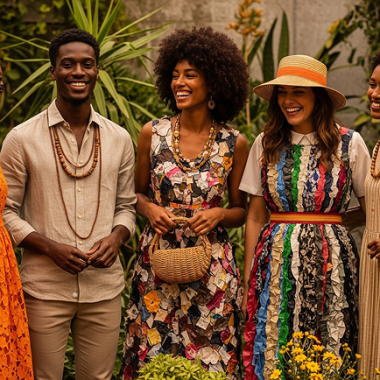In a world saturated with mass-produced items, the innate human desire to express oneself through uniqueness is fueling a powerful trend in the fashion industry: personalization. Today’s consumers don’t just want to buy clothes; they want to acquire pieces that tell their own story, reflecting an unmistakable style and individuality. From tailored fits to custom designs, personalization is reshaping the relationship between brands and customers, transforming the shopping experience into something more exclusive.
One of the clearest manifestations of this trend is made-to-order and customization options. Instead of large-scale manufacturing, many brands are now allowing customers to select specific colors, materials, embellishments, or even apply personalized prints to their products. This not only fulfills the desire to own a “one-of-a-kind” item but also helps reduce unsold inventory, a significant issue in fast fashion. For example, a pair of sneakers can be personalized with an individual’s name, or a handbag can feature exclusive embroidery.
The resurgence of bespoke and made-to-measure fashion also reflects this trend. After a period of being overshadowed by ready-to-wear, custom tailoring is slowly reclaiming its prominence. Customers are willing to pay a premium for garments that fit their physique perfectly, offering a sense of luxury and sophistication that off-the-rack clothing often can’t provide. These services not only ensure optimal fit but also allow customers to participate in the design process, from selecting fabrics to choosing the smallest details.
Personalization isn’t limited to physical products. The shopping experience itself is being tailored to individual customers. Personalized product recommendations based on purchasing history and preferences are becoming commonplace on online platforms. Brands are also investing in personal styling services, both in-person and virtually, where customers can receive expert advice to build a wardrobe that truly suits them. This creates a stronger bond between the customer and the brand, transforming shopping from a mere transaction into an exclusive consultation.
This trend is also fostering the growth of small and independent brands. With their ability to focus on niche markets and offer artisanal, unique products, these brands can more easily cater to customers’ personalization needs than larger corporations. This creates a more diverse and vibrant fashion ecosystem.
In summary, personalization is reshaping consumer expectations for fashion. It’s not merely about owning an item but about owning a story, an experience specifically designed for them. For brands, embracing this trend is not just a competitive advantage but a key to building loyalty and forging deeper connections with customers in an increasingly saturated market.



